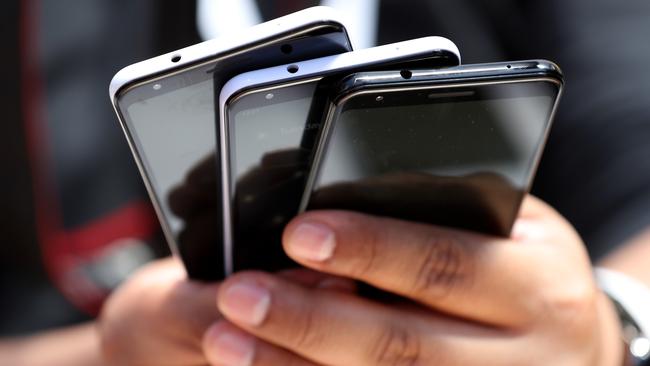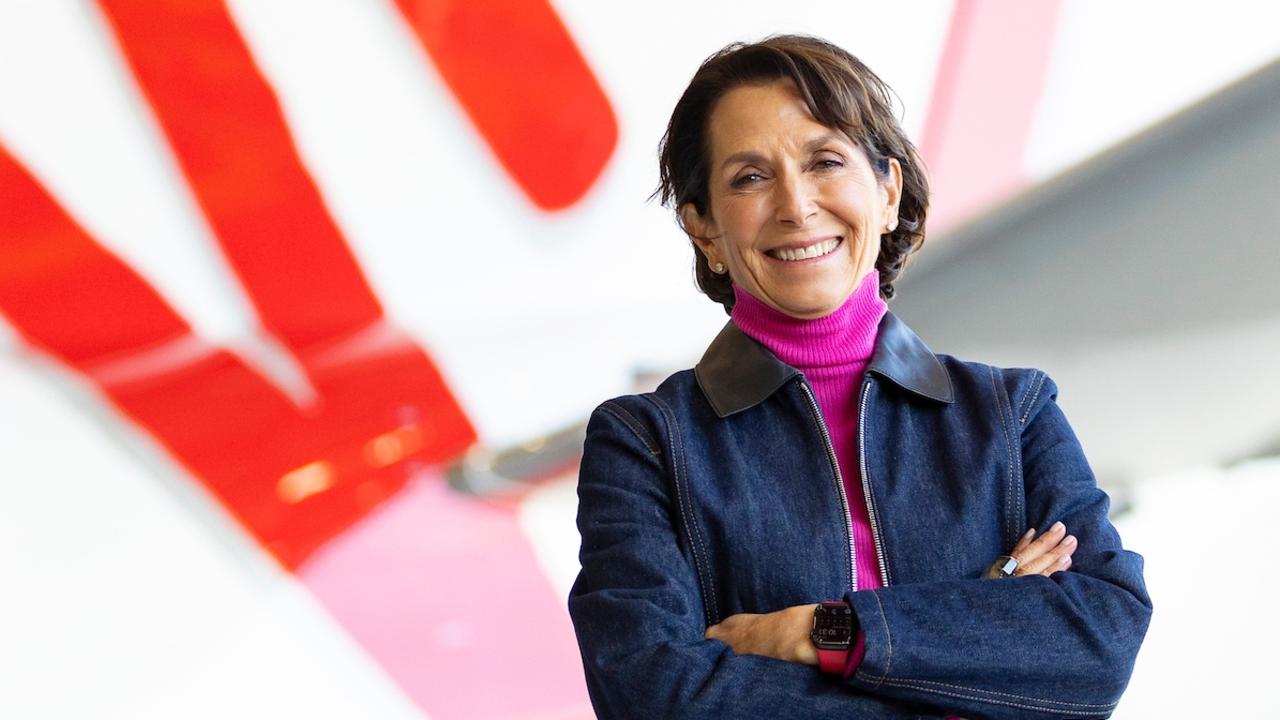Google, Apple face new battle over ’app tax
The coming year is shaping up as one of reckoning for the tech giants, who are facing offensives on multiple fronts and across continents.

Business
Don't miss out on the headlines from Business. Followed categories will be added to My News.
The next year is shaping up as one of reckoning for the tech giants, who are facing offensives on multiple fronts and across continents, amid growing unrest from regulators, users and now their own app developers.
Google was hit with three separate antirust lawsuits in the US last week, with the US justice department and a group of more than 30 states alleging the company violated antitrust law to maintain its online search dominance.
At the same time the EU announced Amazon, Apple, Facebook, and Google will face fines of up to 10 percent of their annual turnover and could even be forced to break up, under draft rules aimed at curbing their powers.
And in Australia, the world-first media bargaining code introduced to parliament this month will force Google and Facebook to pay media companies for news, or face penalties of up to 10 per cent of their local turnover, or $10m, if they fail to play ball.
Amid a throng of regulatory skirmishes, there’s one issue that perhaps best explains the power imbalance between the tech giants and the rest of the world, and it’s one of the least understood by users.
Apple and Google take a 30 per cent cut of nearly every ‘in-app purchase’ made on your smartphone. If you subscribe to a streaming service app like Kayo, or take a digital newspaper subscription to the Herald Sun for example, Apple and Google take nearly one third of that revenue. Apple isn’t the company building the streaming service, and Google isn’t the company putting together the newspaper, yet both tech giants think it’s fair to take 30 per cent of that work.
It’s a fee that is not shown to users, it’s instead just built into the cost of every transaction. And it’s the reason that each of Netflix, Stan and Spotify don’t allow you to subscribe to their services on your iPhone. If you did, they’d only receive 70 cents in the dollar, so they instead direct users to their website where they’ll get the full cut.
That sizeable fee might have been reasonable in 2011, when Apple introduced it. Ten years ago being a mobile app developer was a new profession and the tech companies put a lot of effort into building out their app stores, promoting certain apps and maintaining the sizeable infrastructure required to power them.
Today, the 30 per cent fee is outdated and exorbitant. And worse than being just unfair, the fee is actively putting off Australian developers from making and maintaining apps. Why bother working hard on something when nearly a third of your revenue is being taken from you?
Both Apple and Google have faced growing unrest from their app developers over the fees, and the disquiet is spilling over into court rooms, in both Australia and elsewhere. The issue is bubbling up as a key showdown for 2021, and billions of dollars in app revenue are at stake.
One of the world’s most popular video games, Fortnite, is currently banned from iPhones and iPads after its maker Epic Games tried to circumvent the 30 per cent fee, by selling its own in-game currency (at a 30 per cent discount). Epic is taking on Apple in Australia’s Federal Court next year over the fee, alleging Apple has breached both Australian Consumer Law and the Competition and Consumer Act.
For Epic founder Tim Sweeney the battle is existential. He says that if companies like Apple and Google do control the sale of digital goods and digital commerce into the future, their 30 per cent cut - unless it’s curbed now - will be damaging to all businesses, and consumers.
Nine has also publicly complained about the fee, telling the consumer watchdog it does not offer subscriptions to Stan through its iOS app because Apple’s 30 per cent fee “significantly undermines the commercial benefit derived by Nine”, and that its work on iPhone apps is lesser as a result.
REA Group meanwhile says the 30 per cent fee charged by the app marketplaces is not proportionate to the effort or service provided by the app marketplaces.
There’s also a growing global coalition of companies, dubbed the Coalition for App Fairness, loudly complaining about the ‘app tax’. Its members include Spotify, Tile and Epic Games. “This app tax cuts deeply into consumer purchasing power and stifles developer revenue,” they say on their website. “This is especially unfair when this tax is imposed on apps competing directly with similar apps sold by Apple. This puts businesses at a distinct competitive disadvantage and thus drives up the prices for consumers.”
Apple acknowledged the issue last month when it slashed the 30 per cent app store commission to 15 per cent, for small businesses who earn up to $US1m in revenue in a calendar year. That was a move welcomed by start-ups, but large companies are still stuck with the 30 per cent fee.
Apple has previously defended the fee as being in line with its rivals, and that the App Store creates millions of jobs and an easy pathway to entrepreneurship.
Whether 30 per cent or 15 per cent, the fee begs a broader question about the degree of power that we’ve given to the tech companies. Things that might have seemed reasonable 10 years ago can become outdated - and even harmful - in 2020 as the world’s biggest companies get bigger, and have more reach over all of our lives.
These are not simple matters, but they’re crucial ones. And they’ll help shape 2021 as a make or break for our relationship with ‘big tech’.
-David Swan is The Australian’s Techology Editor



